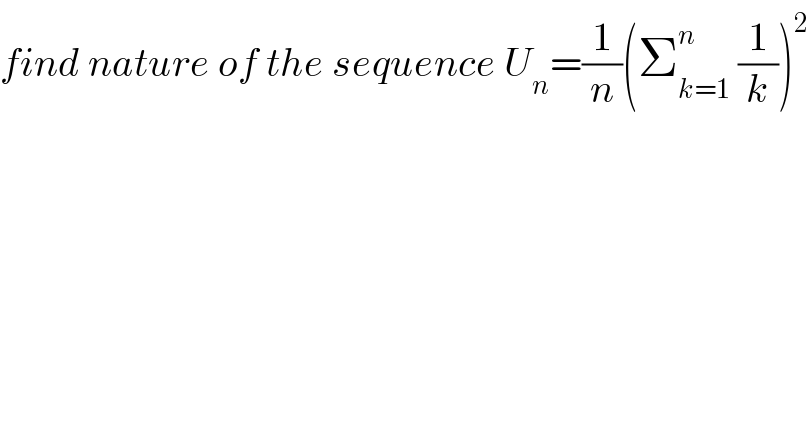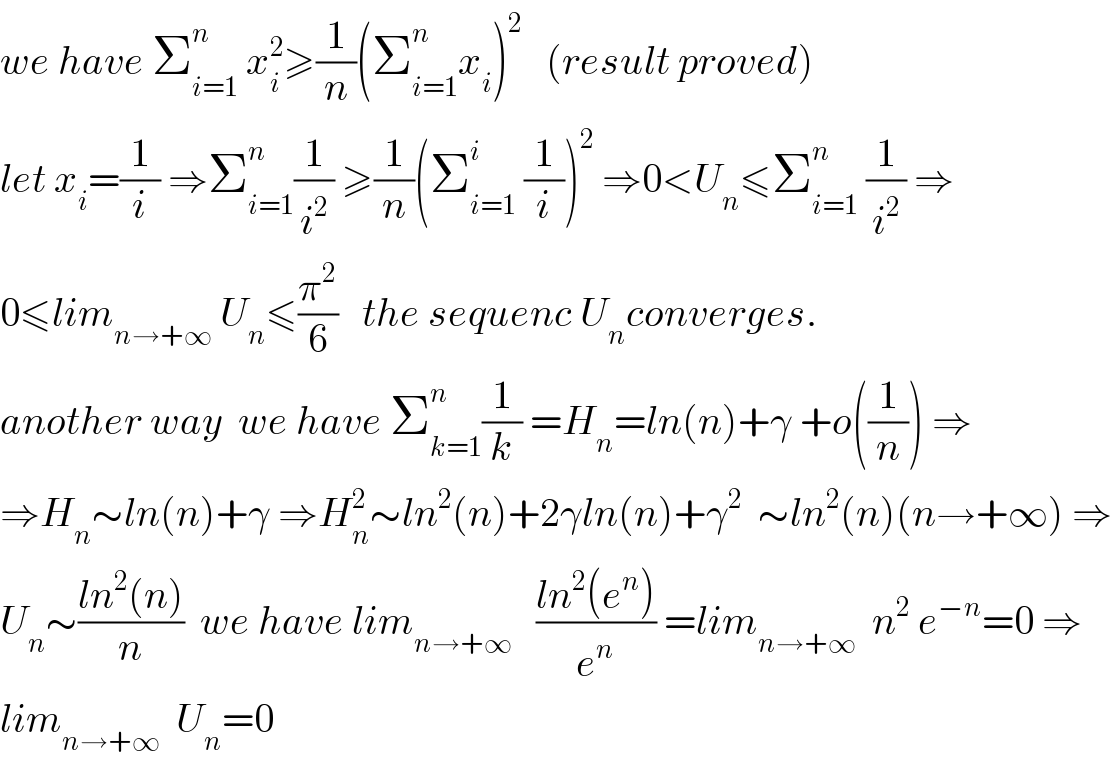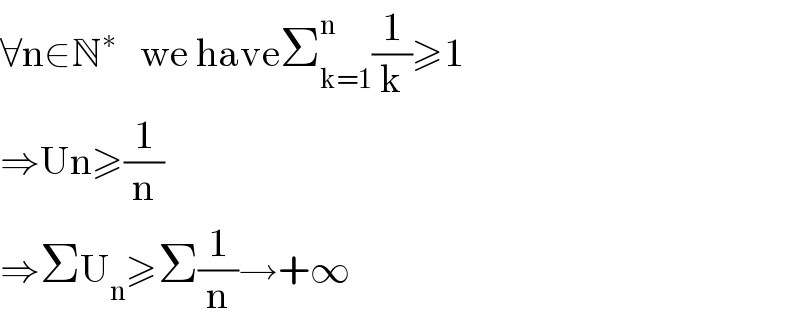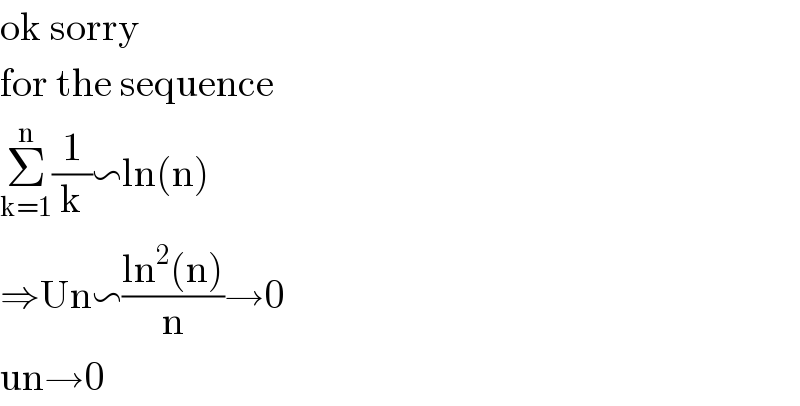
Question and Answers Forum
Previous in Relation and Functions Next in Relation and Functions
Question Number 71664 by mathmax by abdo last updated on 18/Oct/19

Commented by mathmax by abdo last updated on 18/Oct/19

Answered by mind is power last updated on 18/Oct/19

Commented by mathmax by abdo last updated on 18/Oct/19

Commented by mind is power last updated on 18/Oct/19

